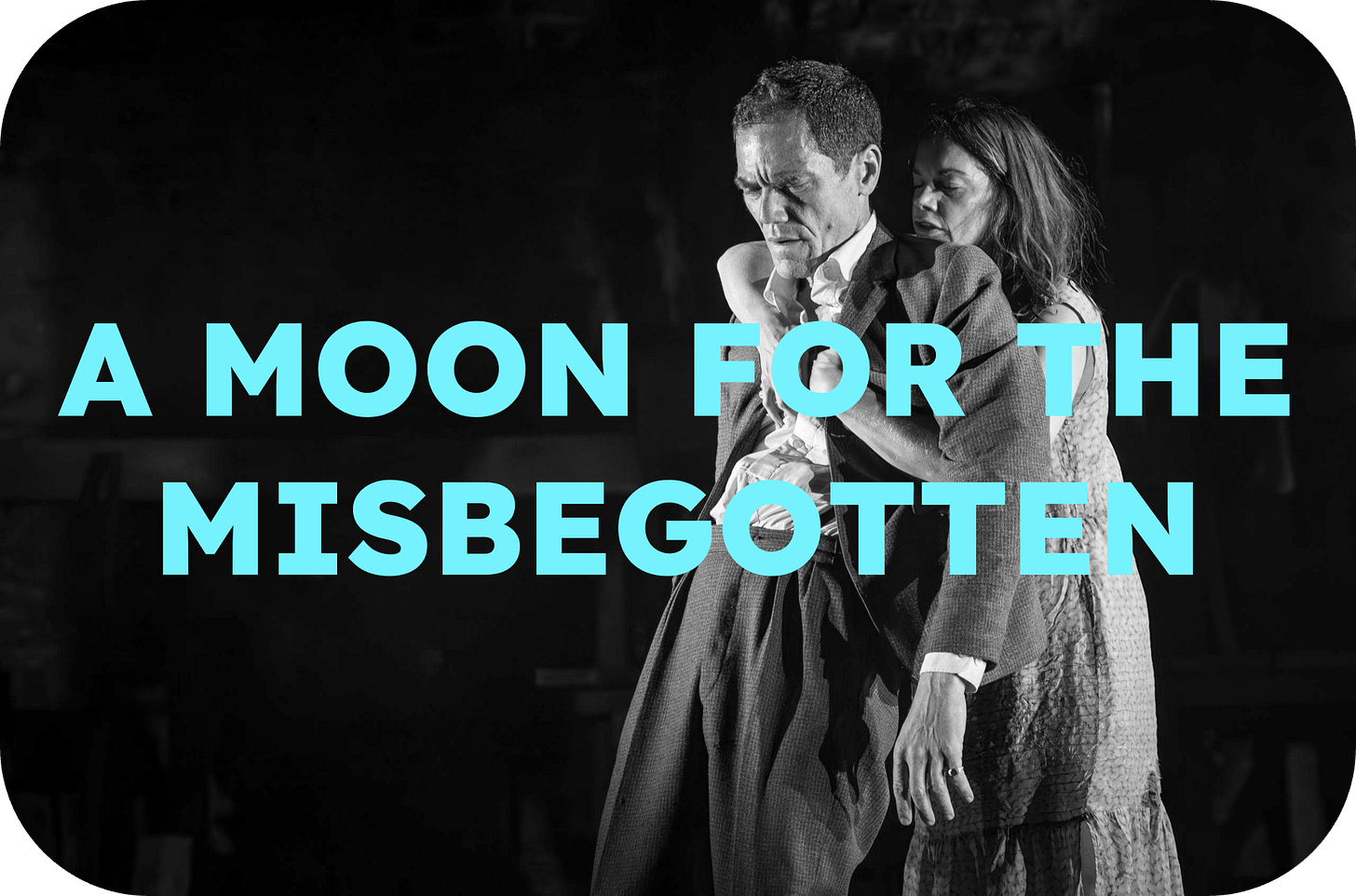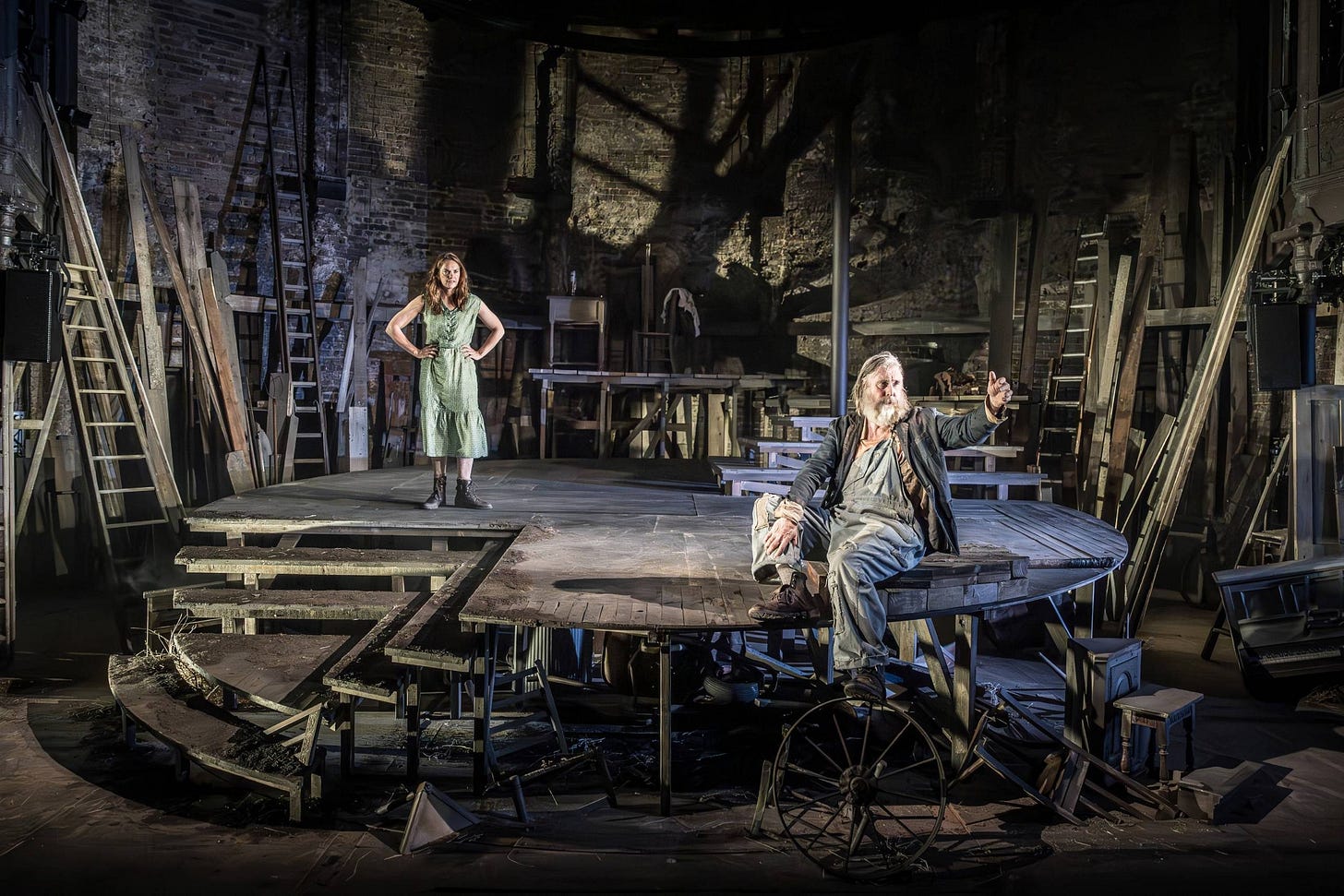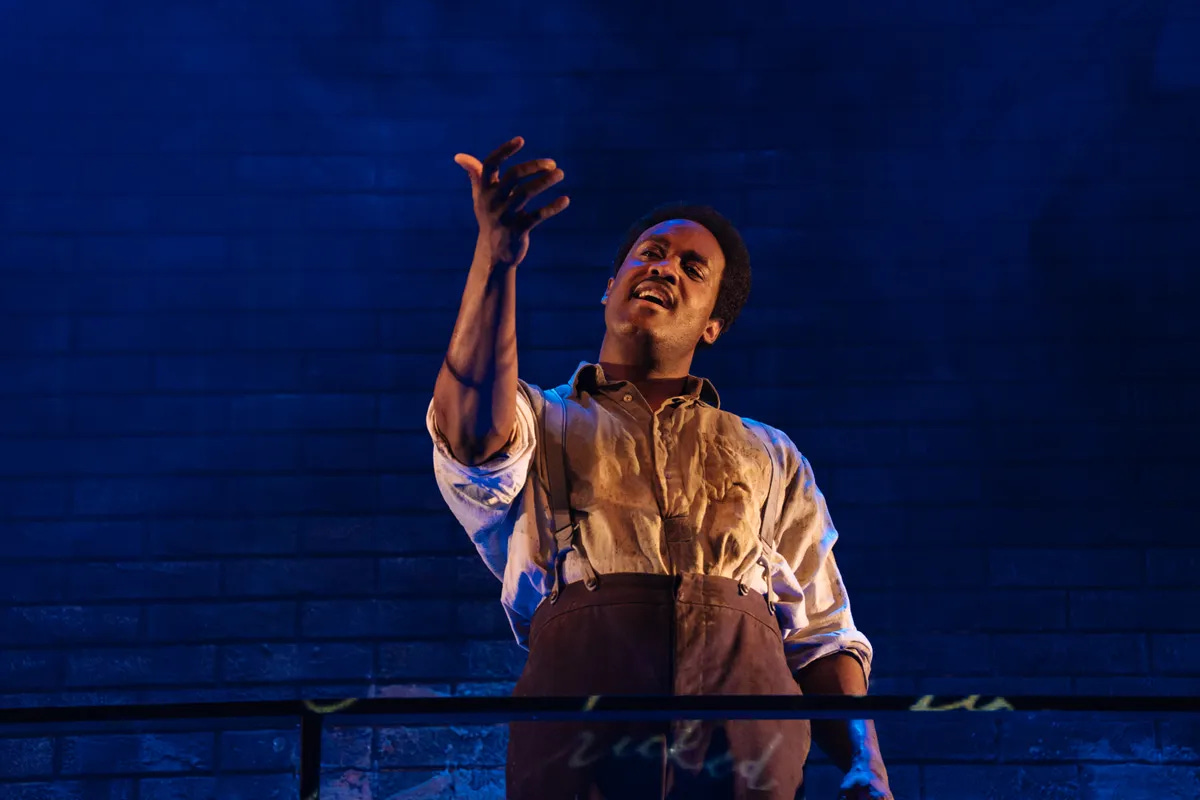Theatre Reviews: A Moon for the Misbegotten; Intimate Apparel
Hollywood talent on London’s smallest stages
This week’s theatre-going paired two intimate venues with two heavyweight dramas from opposite sides of the 20th-century canon. With celebrated directors at the helm and big-name stars in the spotlight, expectations were high, but not always met. The quality didn’t vary quite so wildly as the previous week, but one show still came out on top.
A Moon for the Misbegotten - Almeida Theatre
By Eugene O'Neill
Directed by Rebecca Frecknall
3 hours
Rebecca Frecknall has been an integral part of the Almeida’s recent success, having spent the past seven years reviving a series of classics at the North London theatre. For the Almeida she has tackled Tennessee Williams, Chekhov, Shakespeare, and beyond, and has had multiple London productions appear on Broadway this year. For her latest trick, Frecknall has turned her attention to Eugene O'Neill and A Moon for the Misbegotten.
The play acts as a sequel to Long Day's Journey into Night but requires zero knowledge of its predecessor. I did see Long Day's Journey into Night with Brian Cox last year during an attempt to collect all of Succession’s main cast (I’m still missing Roman, Connor, and Tom) but I retained zero memory of the plot when I arrived at the Almeida and was fine.
Misbegotten stars Ruth Wilson as Josie, a woman trapped working the family farm with her father (David Threlfall), long after the rest of her siblings have fled. Together they relish their rough reputation and dream up schemes to take ownership of the land they work. Set to inherit that same land is Michael Shannon as James, a drunk struggling to cope with the loss of his mother. Josie and James both seem drawn to one another but layers of guilt, self-loathing, and self-doubt seem to be getting in their way. Over one eventful evening the bleakest will-they-won’t-they story unfolds.
As the title might suggest, A Moon for the Misbegotten is not a light play, nor is it a short one. This is a play that thrives on two characters talking, at length, about themselves, their situation, but rarely what they truly feel. The success therefore lies in the cast and creatives making these long scenes feel real and engaging, and keeping the audience from noticing the evening slip away. For me, Frecknall was completely successful at doing that.
This production plays out on a relatively bare, abstract stage. It evokes a ramshackle farmhouse without ever settling into a distinct location. On that stage the actors are given all the space they need to dig their teeth into their roles, something they do with relish without ever chewing the scenery. The moonlight evoked in the title is also brilliantly brought to life. Roving around the stage are two spotlights creating long shadows, illuminating well-worn faces, and casting the otherwise static stage in new light. Everything about this staging is pure drama.
Ruth Wilson rarely leaves the stage and carefully wrangles an American accent with a tinge of Irish creeping through. As a posturing lead Wilson’s performance occasionally feels false and performative, but by the end of the play this is revealed to simply be incredibly nuanced, layered acting. Matching her at this high level, David Threlfall is having great fun as her scheming father. On the one hand he likes to pretend to be a tough, occasionally violent drunk, but deep down Threlfall’s patriarch cares deeply for his daughter and is a secret romantic at heart. And then there’s Michael Shannon.
One of Hollywood’s most magnetic and, frankly, weirdest working actors, Shannon brings an energy unlike anyone on London’s many stages right now. Benefiting from the intimate auditorium of the Almeida, Shannon is free to mumble, to fidget, to fumble, and occasionally, to explode. When he strides up to the ramshackle stage he arrives without a trace of artifice. Through the course of the evening we see light and shade, subtlety and intensity, rough edges and tenderness, from both Shannon and Wilson. From a long-winded old text they wring blood, sweat, and tears.
If anything, the weakest link of the play is the play itself. Drawing from his own family, Eugene O'Neill has written a pretty bleak evening’s entertainment. It is long and - despite the magnetic performances, brilliant staging, etc. - I wouldn’t have been upset had the text been curtailed a little.
Contradictory as it might sound, A Moon for the Misbegotten gave me some performances I doubt I will ever forget, within a play I won’t mind if I never see again. A conflicted but enthusiastic recommendation from me.
Seat: Circle, C10 - £47
We sat where we always sit in the circle. The price always a little painful, but the view unbeatable. Thanks to a couple of no-shows we got some bonus space on our bench too.
Show: ★★★★☆ (4/5)
Seat: ★★★★☆ (4/5)
A Moon for the Misbegotten runs until 16th August 2025.
Intimate Apparel - Donmar Warehouse
By Lynn Nottage
Directed by Lynette Linton
2 hours 25 minutes
Much as Rebecca Frecknall has delivered numerous times for the Almeida, so too have the combination of Lynette Linton and Lynn Nottage for the Donmar Warehouse. Linton has directed productions of both Sweat and Clydes by Nottage at the Donmar, and for her most recent staging has revived Nottage’s 2003 play Intimate Apparel.
This production is built around another trans-Atlantic star as Samira Wiley steps right out of the dystopian future of The Handmaid's Tale and into 1905 New York. Wiley plays Esther who is successful in work - she sews lingerie to order - but unlucky in love - she’s in her mid-thirties and single(!). Fleshing out her world are a handful of characters who provide her both romantic interests (a Jewish tailor and a Panama-based pen pal) and counsel (a sex worker, a high-class client, and her landlady).
In the central role Wiley is the heart of Intimate Apparel. Barely a scene goes by that doesn’t feature Esther, a character that Wiley embodies with a carefully delivered fragile strength. As strong and independent as she might be, it is clear that Esther yearns for more than her lot in life. Sat at the sewing machine, in a rented room in a boarding house she dreams of romance and of owning her own shop. Through the women in her life she learns of the paths she has not walked, and cannot walk, while a letter from a stranger offers hope of a romantic future.
The play is warm, funny, and moving, and Samira Wiley leads an excellent cast, but this particular collaboration between Nottage and Linton didn’t hold together. As evidence that this review is just one man’s opinion I encourage you to read any number of rave reviews from The Guardian, The Standard, and The Stage. But for me - emphasis on “me” - a few weaknesses in the script leave the world surrounding Esther feeling empty and artificial.
Despite the cast of six I don’t recall a single scene that contained more than two characters at once, leaving New York feeling distinctly unpopulated. Compounding this is a plot point in the second half that relies on a coincidence so neat and contrived it exposes the mechanics of the plot. I won’t go into detail to keep the show unspoiled but this particular incident left the world feeling uninhabited beyond the six characters we meet. When the stitching holding a plot together becomes so visible I can’t suspend my disbelief. By this point, I was no longer lost in an artificial world, but all too aware of the artifice.
Your experience might vary, and judging by other reviews, my response is definitely in the minority. Intimate Apparel is a good play, but wasn’t up to the high standard Nottage and Linton have set.
Seat: Circle, B36 - £40
Another theatre I love but resent the ticket prices. I was sat to one side of the stage and could see almost everything. Proximity was perfect with the occasional scene taking place out of sight below me.
Show: ★★★☆☆ (3/5)
Seat: ★★★★☆ (4/5)
Intimate Apparel runs until 9th August 2025.







